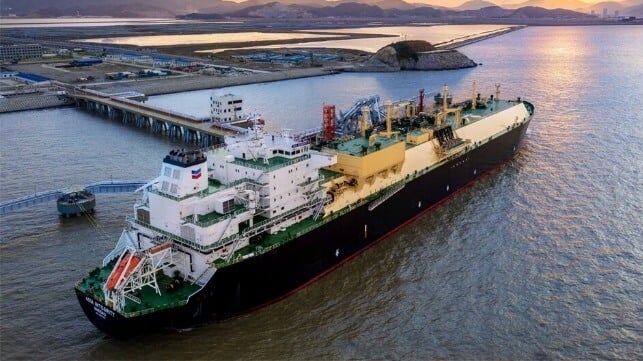Wärtsilä and Chevron Start Unique Engine Conversion to Reduce Methane Slip

Wärtsilä and Chevron Shipping Company are starting a first-of-its-kind program to convert engines on six of the company’s LNG carriers to reduce methane slip. The companies undertook a two-year collaboration to develop a unique approach to one of the key issues in the use of LNG as a marine fuel. Chevron placed an order to proceed with the conversion of the first two vessels.
"Chevron Shipping aims to reduce methane emissions intensity of our LNG fleet in support of a lower carbon future," says Barbara Pickering, President of Chevron Shipping. "We are pleased to collaborate with Wärtsilä in this industry first.
Environmentalists have focused on the release of unburnt methane which is known as methane slip. They argue that methane is a more harmful greenhouse gas as it traps more heat in the environment. The maritime engine and LNG groups respond that the newer generation of engines has reduced or eliminated methane slip while multiple initiatives are also looking at the potential of a scrubber-like installation to capture the methane from a vessel’s emissions.
Wärtsilä explains that the conversion program is designed to convert its popular dual-fuel engine to spark gas (SG) operation. The company explains that using spark ignition versus diesel pilot fuel to initiate combustion enables a more optimized combustion process. It reduces the methane slip and improves efficiency.
"This innovative project represents a notable step forward on the road to advancing lower-carbon fleets," said Roger Holm, President of Wärtsilä Marine & Executive Vice President at Wärtsilä Corporation. “Wärtsilä has an extensive track record in reducing methane slip from LNG-fuelled engines, not only as newbuild solutions but also through retrofitting existing installations.”

that matters most
Get the latest maritime news delivered to your inbox daily.
This new technology complements Wärtsilä's extensive portfolio of solutions aimed at reducing methane emissions from vessels. With nearly three decades of experience in LNG technology, Wärtsilä says it focuses on providing both the dual fuel flexibility provided by the DF engine, as well as with the single-fuel SG engine.
No details were announced on the timing of the conversion or where it would take place.
